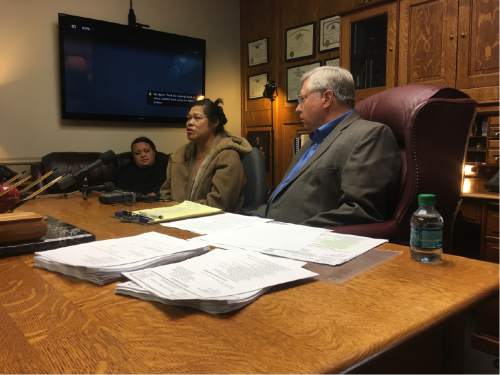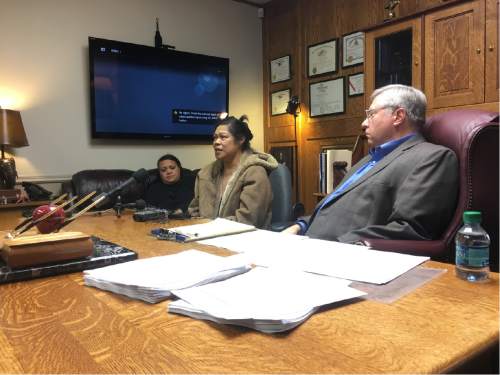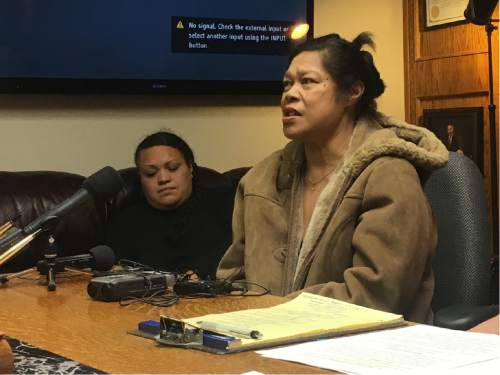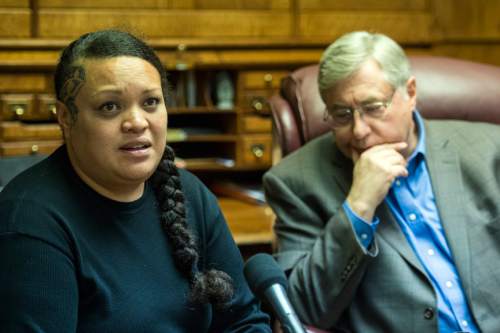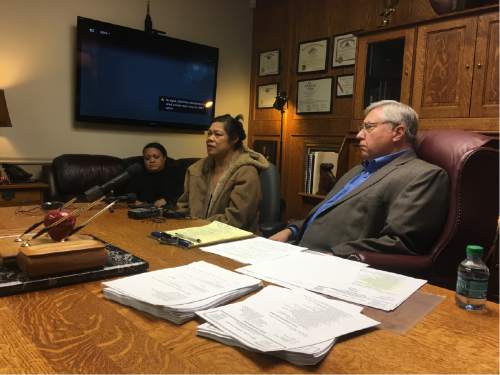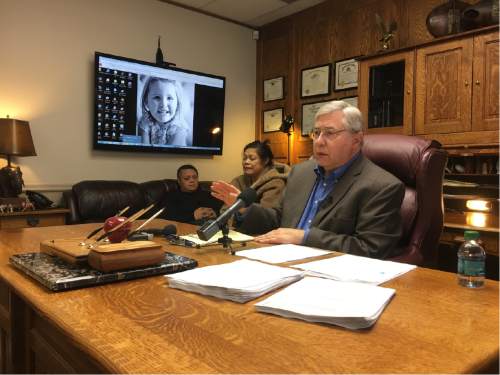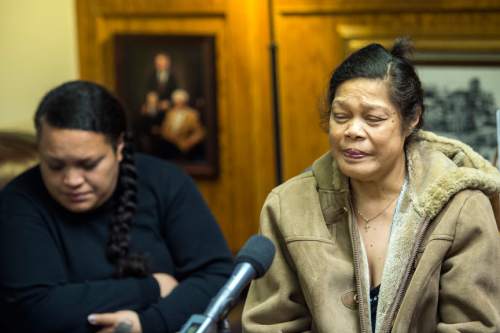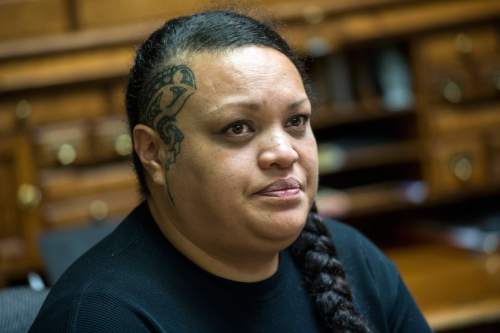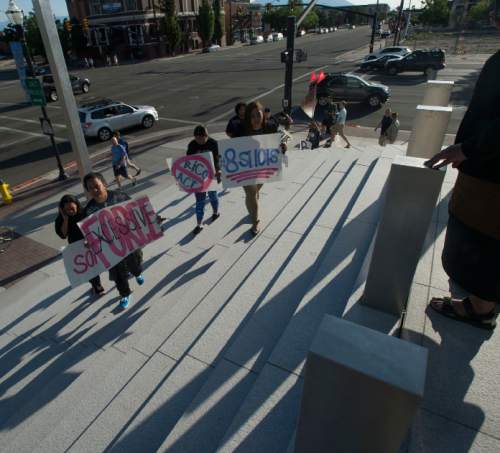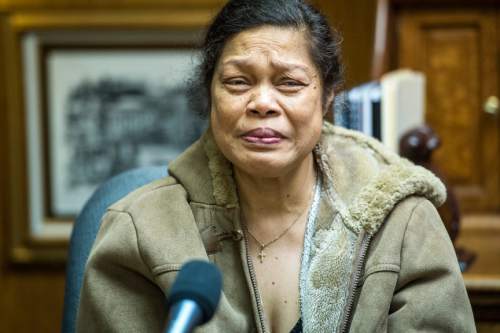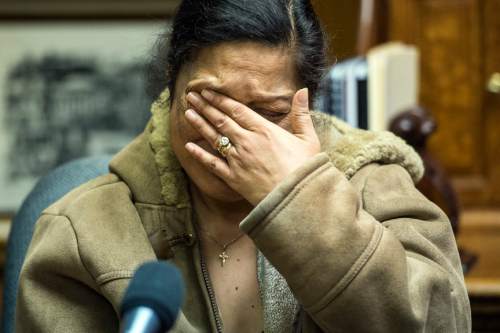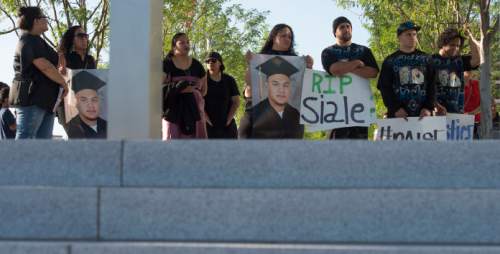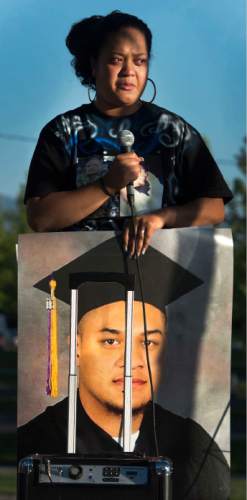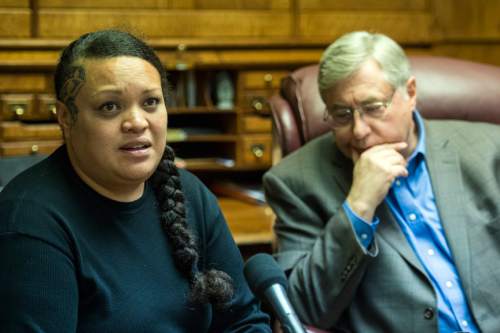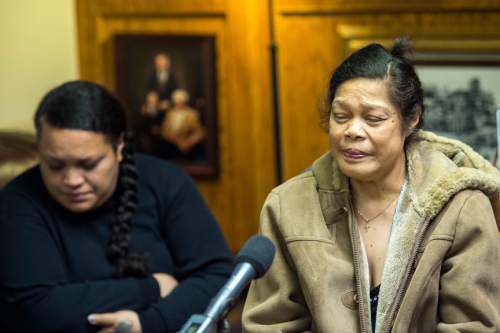This is an archived article that was published on sltrib.com in 2016, and information in the article may be outdated. It is provided only for personal research purposes and may not be reprinted.
The parents of Siale Angilau — who was shot to death by a U.S. marshal two years ago during a federal court trial — filed a lawsuit Thursday against the United States government and the woman who fired the fatal shots.
And government officials' refusal to release video of the shooting leads the family's attorney to believe that they must be "hiding" something.
The lawsuit, filed in U.S. District Court, says that Angilau's April 2014 death resulted from a "grossly negligent use of unnecessary, deadly force," which violated Angilau's civil rights.
Angilau, 25, was indicted on racketeering charges in May 2010 after having been identified by federal prosecutors as an alleged member of the Tongan Crip Gang. He had already served most of a seven-year prison sentence from a previous conviction, according to attorney Robert Sykes, but he was brought to trial on old charges.
On April 21, 2014, the first day of Angilau's trial and the first day the new federal courthouse was open, Vaiola Mataele Tenifa was testifying about how Tongan Crip members enter the gang.
According to witnesses in the courtroom, Angilau jumped from the defense table and attempted to punch Tenifa. Some witnesses said Angilau appeared to be holding a pen or pencil.
At that point, a marshal shot Angilau several times, witnesses said. The FBI later said that the marshal shot Angilau four times.
On July 14, 2014, the Department of Justice announced that the marshal was justified in shooting Angilau.
No federal agency has identified the marshal. But the lawsuit, filed Thursday by Sykes, identifies the marshal as "Jane Doe" and says that while Sykes knows her identity, he is protecting her privacy.
The marshal, who was one of several in the courtroom that day, fired a first shot that likely hit Angilau in the arm, according to the lawsuit.
There was no real threat to anyone when that first shot was fired, the lawsuit says.
"However, when Shots 2, 3 and 4 were fired," the lawsuit states, "there was no longer even a semblance of a threat to [Tenifa], Marshal Jane Doe or anyone else in the courtroom."
"After dropping Siale to the ground with the first gunshot, Marshal Jane Doe approached the witness box and shot Siale three more times in the back, from close range," the lawsuit claims. "Siale was no longer a threat when Shots 2, 3 and 4 were fired."
The lawsuit relies, in part, on courtroom video that a court employee played for Sykes and the Angilau family last year. Neither the family nor the attorney was allowed to keep a copy of what Sykes, who said he took notes of what he saw, described during a news conference Thursday as an extremely grainy and heavily redacted video — like "something shot by an amateur in the 1960s."
The family reached out several times in the year after Angilau was shot, requesting the video and a copy of the FBI's investigation report, Sykes said, without so much as a response from the federal government. Still, he said, they've not received "a single document" from it.
Requests from The Salt Lake Tribune and other local news agencies to obtain copies of the video either have been denied or gone unanswered.
The U.S. Marshals Service, the FBI and the U.S. Department of Justice have denied or not yet replied to the Freedom of Information Act (FOIA) requests filed by Utah reporters.
In July, attorneys for the Utah Headliners Chapter of the Society of Professional Journalists filed a new FOIA request on behalf of the 18 news outlets seeking video footage of the shooting.
While Sykes hasn't seen other footage produced in the building, he said, it's hard for him to believe the footage he and Angilau's parents saw was the highest-quality video taken in the new court facility, or that it was the only footage taken.
He's used "very good, very expensive" equipment in the courthouse for jury trials since, he said, and there are multiple security cameras in a courtroom.
Angilau's mother, Valu Angilau, and older sister Tolina Tausinga spoke alongside Sykes Thursday.
"I know that you think he's a bad boy," Valu Angilau said through tears, "but he's a good boy to me."
Watching the grainy footage of her son's death was "terrible," and she cried while viewing it. She recalled seeing his head down on the desk after the first shot, and then three more shots.
She received letters from her son before his death, describing how he had turned his life around in prison, and she cries when she sees his photos in her home.
Tausinga echoed the sentiment and noted that "the reason for doing what he did [in the courtroom] was to protect his younger brother."
"I was the oldest," Tausinga added, "but I felt like he was our older brother."
While Siale Angilau should be held accountable for what he did, Tausinga said, the amount of force used by the marshal was an inappropriate response.
Valu Angilau said she believed her son was killed because of the color of his skin, and what she wants most is for no one else to suffer his fate.
"I know that I'm a different color," she said. "I'm from Tonga, but I want the whole world to see what's going on."
Sykes and Siale Angilau's family expressed outrage that the video footage has not yet been released publicly.
"When you have anything going down in a public place, it should be public," Tausinga said. "We're not going to mourn in silence. We're going to speak up."
Neither Valu Angilau nor Tausinga were present when Siale Angilau was shot, but Tausinga is "honestly thankful," she said, "because there would have been more than just one funeral."
In honor of her brother, Tausinga said, they've started the "Raise Your Pen Coalition" to "push for positive changes" in the community.
The courtroom should be a safe place, Valu Angilau said, and the marshal who took her son's life should have used another tactic, like tackling or even shooting Siale Angilau with a stun gun. If the officer had stopped after the first shot, she said, her son might still be alive.
The Angilaus' lawsuit seeks unquantified damages for pain and suffering, as well as punitive damages.
Twitter: @mnoblenews


